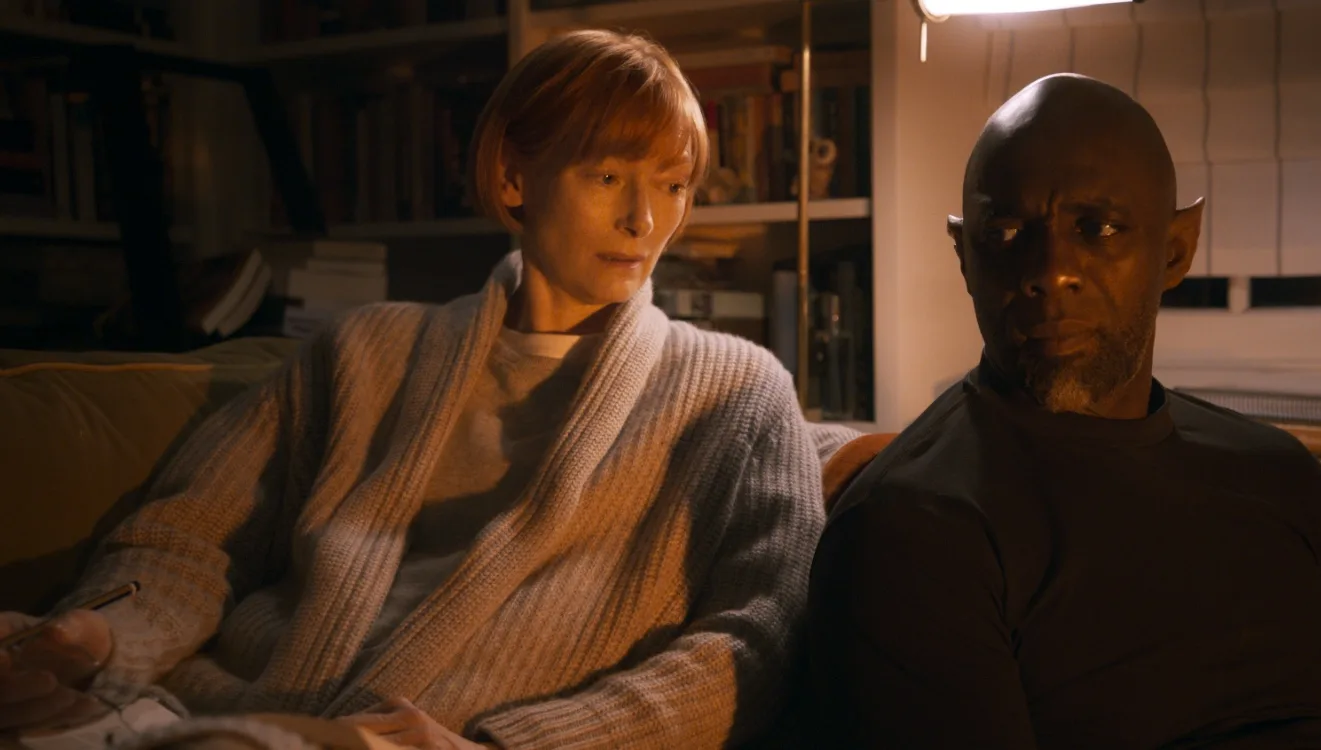
Film Review: Three Thousand Years of Longing
Film Reviews
Three Thousand Years of Longing
Director: George Miller
Kennedy Miller Mitchell
In Theaters 08.26
In 2015, George Miller made Mad Max: Fury Road, one of the best action films of all time. As such, I went into his new fantasy drama, Three Thousand Years of Longing, with my hopes high, yet braced for the possibility of being underwhelmed. I should have braced myself harder.
Tilda Swinton plays Dr. Alithea Binnie, a renowned scholar of mythology, who is attending a conference in Istanbul when she chances upon a bottle that holds a djinn (Idris Elba), who offers her three wishes in exchange for his freedom. As a scholar of mythology, Alithea knows that all stories about granting wishes are cautionary tales, and thus she wants no part of it. The djinn then tells Alithea three stories of his past, attempting to gain her sympathy and understanding.
Three Thousand Years of Longing, which is based on The Djinn in the Nightingale’s Eye by A.S. Bryant, is buoyed by crisp, textured cinematography and gorgeous production design, and Miller’s reputation for painting exquisite pictures is certainly intact. However, the film is decidedly lacking in nearly every other respect, and the script by Miller and Augusta Gore plays like a rough first draft. If I could have three wishes to use on Three Thousand Years of Longing, I would first wish for a sense of pacing that didn’t make its 108-minute runtime feel like a four-hour, laborious slog. My second wish would be for some chemistry between Swinton and Elba, who both give capable performances that fail to connect with each other or generate enough heat to warm up a Pop Tart. My third and final wish would be that even one of the three tales that the djinn tells were at least mildly engaging or had any clear point to make beyond rambling vaguely in the direction of the standard “be careful what you wish for” cliche.
Three Thousand Years of Longing is hardly bereft of intriguing subject matter or promising ideas, though this makes it all the more frustrating. The theme of humankind creating myths to fill the gaps in our understanding couldn’t be more timely in the age of Marvel Studios or FOX News, while loneliness and desire are universally relatable. The approach to each concept here is purely perfunctory, merely skimming the surface, and any musings presented are better served as jumping-off points for daydreams your mind can wander off into while you’re not paying attention to the film.
Elba brings an exotic, mystical quality to the djinn, and Swinton does her best to make us feel a connection to Alithea. Still, there is only so much a talented storyteller can do without a good story to tell, and there’s a detached feeling at all times that I never felt like I was watching anything other than two mismatched actors doing their best to wade their way through a shallow script. Despite their best efforts, I never cared enough about either of these characters to feel invested in where this was all going. The second of the stories, which becomes oddly obsessed with a supporting character’s sexual fetishes, is cheapening, crass and an ordeal to get through, playing like little more than a lurid and unnecessary exercise in shock value and body shaming.
Three Thousand Years of Longing is ambitious, and Miller’s attempt to explore the purpose and nature of storytelling is a worthwhile concept, but ultimately fails in execution. It’s tempting to give the film more credit than it deserves for being different from anything else that has come out this summer, and it’s packed with plenty of striking visuals. Still, I can’t think of anyone to whom I could genuinely recommend it to as being worth their time or the price of admission. George Miller may have earned the clout and the right to make something so utterly flat, pretentious and self indulgent, yet it doesn’t change the fact that audiences have earned the right to a better use of their time. –Patrick Gibbs